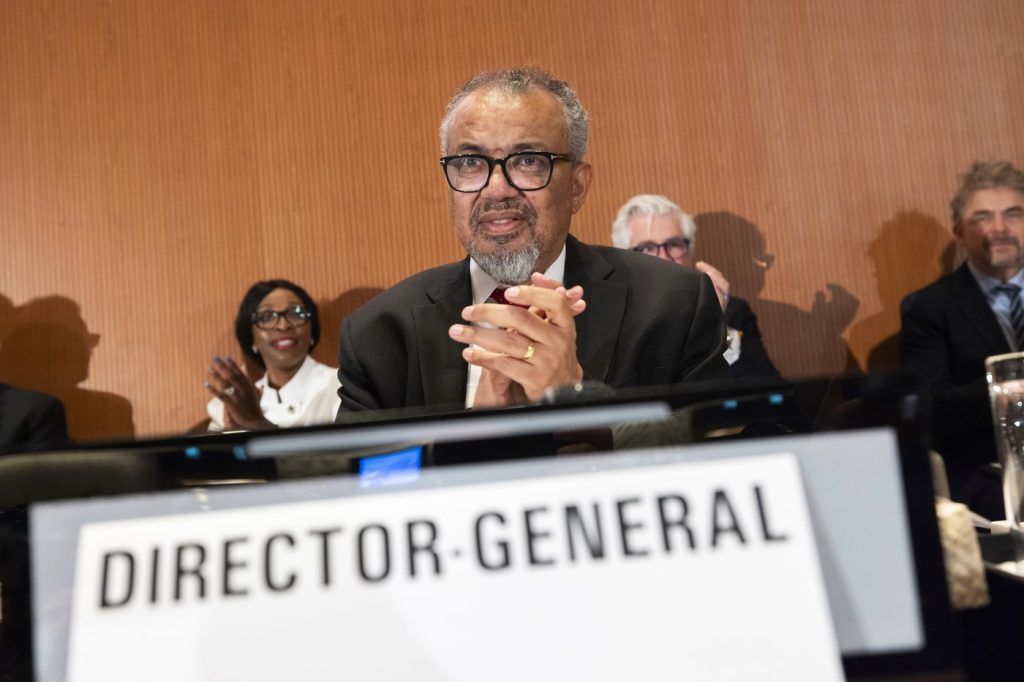GENEVA (AP) – On Tuesday, the World Health Organization (WHO) announced that its member countries approved a groundbreaking agreement aimed at enhancing global preparedness and response to future pandemics. This decision comes as a direct response to the challenges that arose during the COVID-19 pandemic, which caused significant devastation across the globe.
During the annual assembly of the WHO, sustained applause filled the hall as representatives of various nations marked the passage of this treaty, which had been carefully debated and developed over a span of three years. The approval was unanimous, symbolizing a collective commitment to addressing public health challenges collaboratively.
The newly ratified treaty ensures that countries sharing virus samples will receive essential tests, medicines, and vaccines in return. Specifically, up to 20% of these medical products will be allocated to the WHO, facilitating access for poorer nations during future health crises. This commitment is particularly critical as the global community acknowledges the disparities that the COVID-19 pandemic highlighted.
WHO Director-General Tedros Adhanom Ghebreyesus emphasized the historic significance of this agreement. He described it as a pivotal moment for multilateral cooperation, especially at a time when many nations tend to prioritize individual national interests over global solidarity and collaboration.
Dr. Esperance Luvindao, Namibia’s health minister and the chair of the committee responsible for the treaty's progression, echoed these sentiments. She highlighted the profound impact that the COVID-19 pandemic had on lives, livelihoods, and economies worldwide. "As sovereign states, we have resolved to join hands, as one world together, to protect our children, elders, frontline health workers, and all others from the next pandemic," Luvindao stated. She underscored that this endeavor constitutes a duty and responsibility to all of humanity.
Despite the positive reception of the treaty, its future effectiveness may remain uncertain due to some significant factors. Notably, the United States – a nation that has historically played a crucial role in funding the WHO and was instrumental in the rapid development of COVID-19 vaccines – has opted not to participate in this final agreement process. The U.S. withdrawal from the WHO and its funding commitments was formalized during the Trump administration in January 2021, leaving questions about the treaty's enforcement and universality.
Moreover, critics point out that the treaty does not impose penalties for countries that fail to comply with its provisions, a common limitation found in international law. This raises concerns about the accountability of nations in fulfilling their commitments, as there are no repercussions for non-compliance.
Overall, the approval of this pandemic preparedness treaty marks a significant milestone in global health governance. It reflects a unified aspiration among member states to fortify international health systems and ensure that the lessons learned from the COVID-19 crisis lead to meaningful action in the face of future pandemics.
Jamey Keaten, The Associated Press











